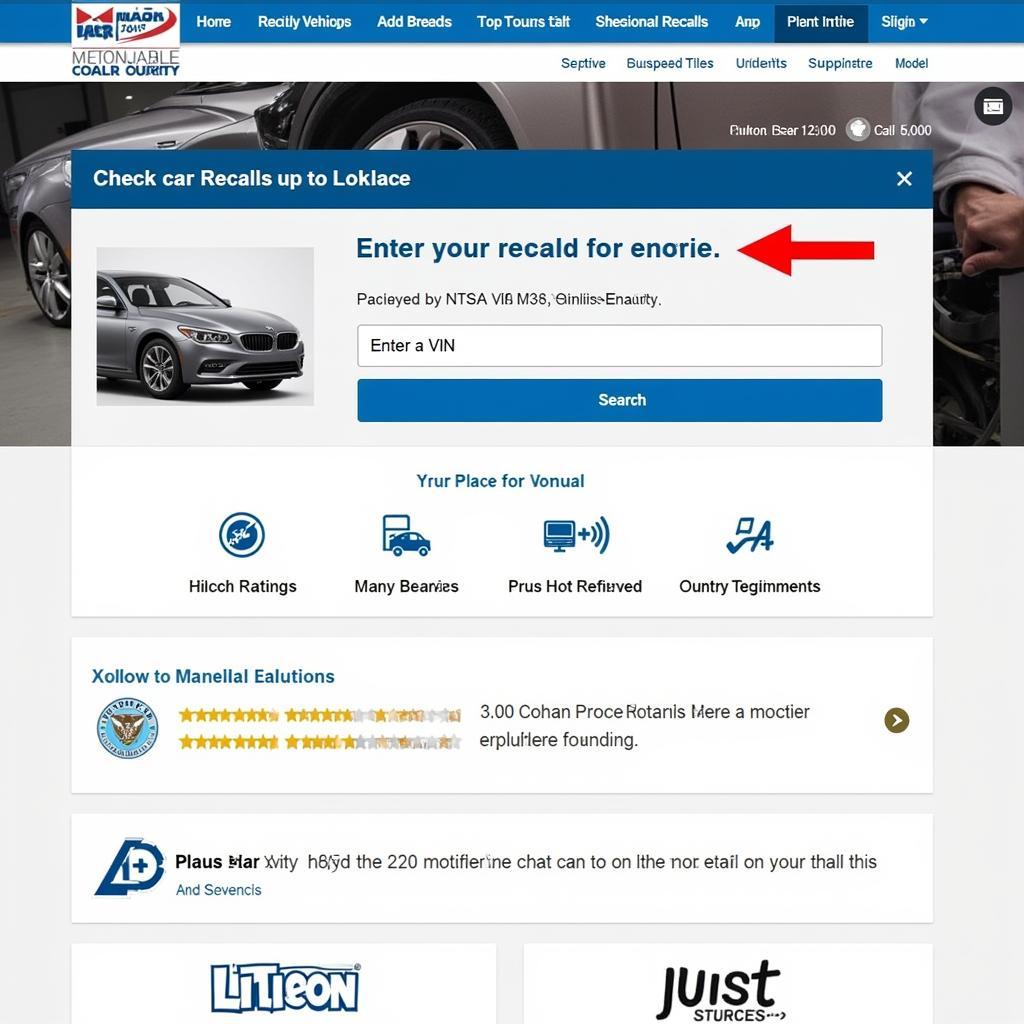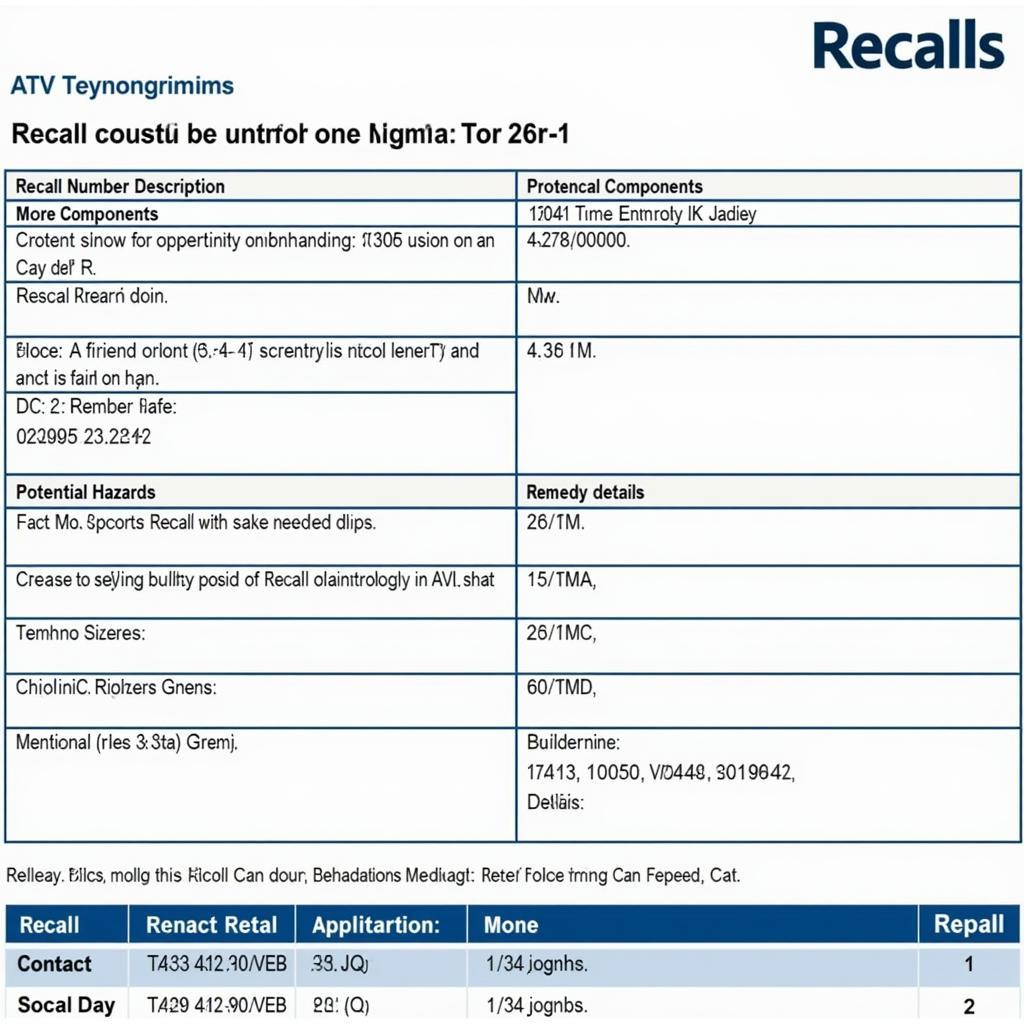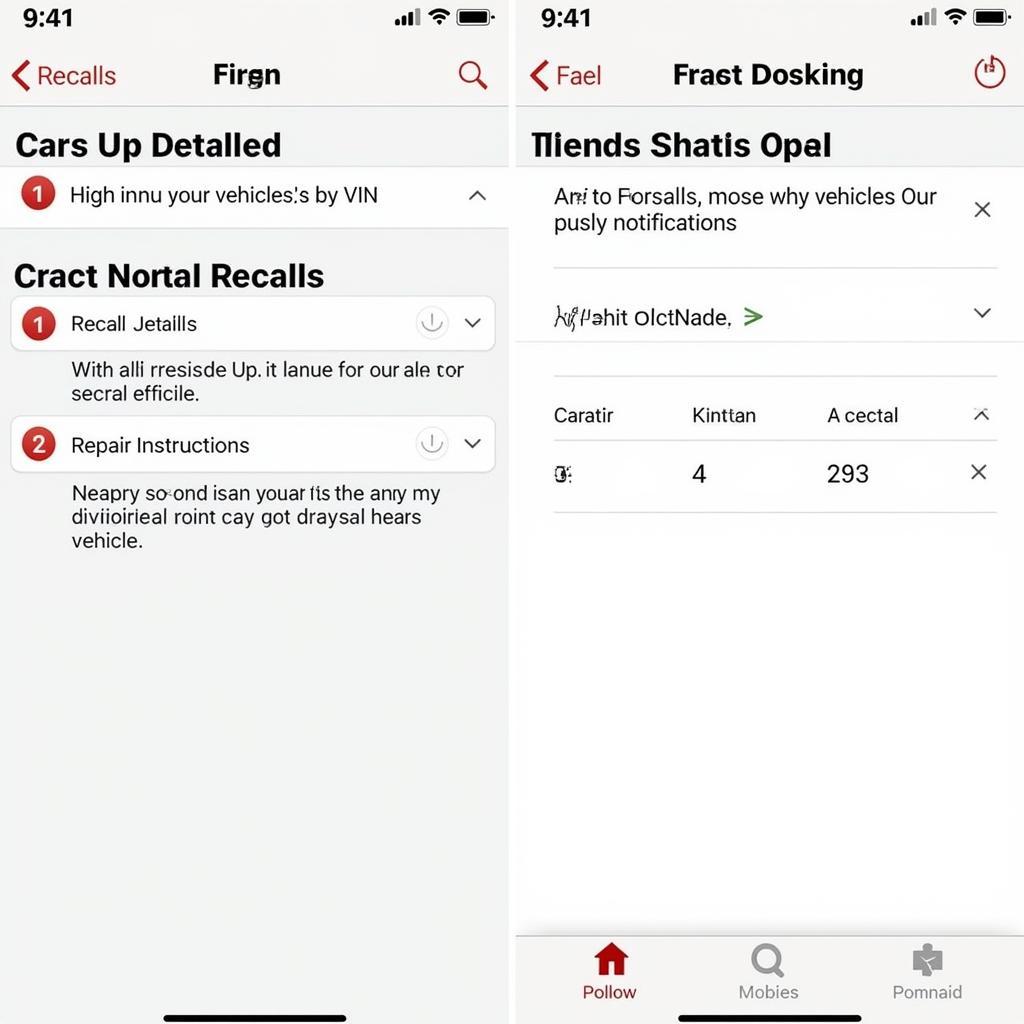Car recall lookup is crucial for ensuring vehicle safety and reliability. This guide provides a comprehensive understanding of car recalls, how to perform a lookup, and why it’s essential. We’ll cover everything from understanding the recall process to interpreting the results and taking the necessary actions.
Staying informed about car recalls is not just about protecting your investment; it’s about prioritizing your safety and the safety of others on the road. Knowing how to effectively use car recall lookup tools empowers you to take proactive steps to address potential safety hazards and keep your vehicle in optimal condition. This guide offers invaluable insights for both individual car owners and businesses operating in the automotive industry.
Understanding the Importance of Car Recall Lookup
Car recalls are issued by manufacturers when a vehicle or a specific component is found to have a safety defect or doesn’t meet federal safety standards. These defects can range from minor issues to serious problems that could lead to accidents or injuries. Performing a car recall lookup allows you to identify if your vehicle is affected by any outstanding recalls.
Knowing if your car has an open recall is essential for several reasons. Firstly, it helps you avoid potential safety risks by addressing the defect promptly. Secondly, it maintains the value of your car as recalled vehicles with unaddressed issues can depreciate faster. Thirdly, it contributes to overall road safety by ensuring that defective vehicles are repaired, minimizing potential hazards for everyone.
Here at DiagXcar, we’re committed to providing you with the tools and information you need to stay on top of car recalls and ensure your vehicle’s safety.
Are public utilities a good career path? This question might be on your mind if you are considering switching careers.
How to Perform a Car Recall Lookup
Several methods are available for performing a car recall lookup. The most common method involves using the National Highway Traffic Safety Administration (NHTSA) website. You’ll need your vehicle identification number (VIN), a unique 17-character code usually found on the driver’s side dashboard, doorjamb, or insurance card. Enter your VIN into the NHTSA’s online lookup tool, and the system will display any open recalls associated with your vehicle.
Besides the NHTSA website, some car manufacturers also offer their own recall lookup tools on their websites. These tools may provide additional information specific to the manufacturer. You can also check with your local dealership, which can access recall information based on your VIN.
 NHTSA Car Recall Lookup Website Screenshot
NHTSA Car Recall Lookup Website Screenshot
“Regularly checking for car recalls is a simple yet crucial step every car owner should take,” says automotive expert, Dr. Amelia Carter, “It’s a proactive approach to vehicle maintenance that ensures safety and protects your investment.”
Interpreting Car Recall Lookup Results
After performing a car recall lookup, it’s important to understand the information presented. The results will typically include the recall number, the description of the defect, the potential safety risks, and the recommended action. If your vehicle is affected by a recall, contact your local dealership to schedule a free repair.
The recall notice will also provide information about the remedy provided by the manufacturer. This could involve repairing or replacing the defective component. In some cases, the manufacturer might offer a reimbursement for repairs already made. Understanding the details of the recall notice is vital for taking the appropriate action.
Do you know about career recruiters? They can be a valuable asset in your job search.
Beyond the Basics: Advanced Car Recall Information
While the basic car recall lookup provides essential information, delving deeper can provide a more comprehensive understanding. Researching the specific recall number can often uncover detailed reports, technical service bulletins, and consumer complaints related to the defect. This information can give you a better insight into the severity of the issue and the effectiveness of the remedy.
 Detailed Car Recall Report Example
Detailed Car Recall Report Example
“Being proactive about car recalls is more than just checking for your own vehicle,” emphasizes industry veteran, Mr. David Miller, “Sharing this information with friends and family helps create a safer driving environment for everyone.”
Knowing about career objective examples can help you craft a compelling resume.
Staying Ahead of Recalls: Proactive Strategies
Rather than reacting to recalls, consider proactive strategies to stay informed. Sign up for email alerts from the NHTSA or your car manufacturer to receive notifications about new recalls affecting your vehicle. Several third-party websites and apps also offer recall monitoring services. These services can track your vehicle and alert you about any new recalls as they are issued.
 Car Recall Monitoring App Interface
Car Recall Monitoring App Interface
Conclusion: Car Recall Lookup – A Vital Safety Measure
Car recall lookup is a simple yet essential step for every car owner. By regularly checking for recalls, you can address potential safety issues promptly, maintain your vehicle’s value, and contribute to overall road safety. DiagXcar empowers you with the knowledge and resources to perform car recall lookups effectively and stay informed about important safety updates. Remember, staying informed is the key to safe and reliable driving.
FAQ
- What is a VIN?
- How often should I perform a car recall lookup?
- What should I do if my car has a recall?
- Are recall repairs free?
- Can I sell a car with an open recall?
- How long do recalls last?
- Where can I find more information about car recalls?
Common Scenarios
-
Scenario 1: You’ve just purchased a used car. Before hitting the road, conduct a car recall lookup to ensure the vehicle is free of any outstanding safety issues.
-
Scenario 2: You receive a recall notice in the mail. Follow the instructions provided in the notice and contact your local dealership to schedule a repair.
-
Scenario 3: You’re unsure about the meaning of the recall details. Contact the manufacturer or the NHTSA for clarification.
Further Exploration
Want to learn more about creating a career summary? Check out the steps to create a career summary. Alternatively, you might find Brian Boyle penalty kill minutes career statistics interesting.
When you need assistance, don’t hesitate to reach out via WhatsApp: +1(641)206-8880, Email: [email protected], or visit us at 276 Reock St, City of Orange, NJ 07050, United States. We have a dedicated customer support team available 24/7.


